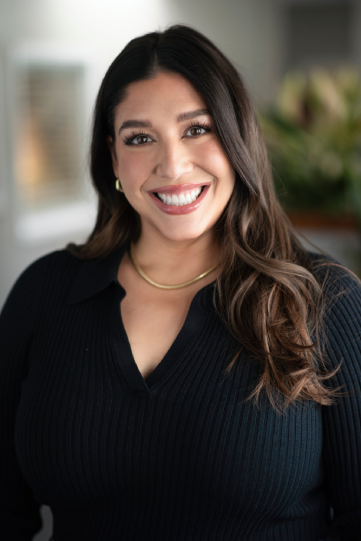Understanding the Role of a Seattle Collaborative Divorce Attorney
Collaborative divorce is a non-confrontational way for divorce attorneys to work together to help their respective clients resolve their divorce issues. Collaboration offers a process for managing conflict without a third-party decision maker. In a this process, a Seattle collaborative divorce attorney seeks to help the parties handle their conflict without causing further damage to the relationship and to transition their marriage/partnership into a new form of relationship, particularly when they need to be able to continue to function as co-parents.
To determine whether you qualify for collaborative divorce services, a Seattle collaborative divorce attorney will need to discuss whether you and your spouse both:
- Want to avoid fighting
- Have the ability, with help if needed, to really listen to each other
- Are willing to work with specialists to problem-solve together
In a collaborative divorce case, the focus is on providing a safe, peaceful, and respectful process for both parties. We meet together to plan ways to resolve the issues. By approaching the issues as mutual problems to resolve, we treat those issues as the problem rather than seeing the other party as the problem.
Does Collaborative Divorce Require Special Training?
Collaborative lawyers as well as the other team members undergo extensive training in collaborative process and mediation skills, as well as cross-discipline training to enable us to work better as a team. I tell people that it is actually harder and takes more skills to help people talk to each other than it does to talk for them!
How Your Seattle Collaborative Divorce Attorney Manages Your Claim
You and your spouse will typically work with a professional divorce team in a collaborative divorce case, including two collaborative lawyers, a financial specialist, a divorce coach, and a child specialist. The purpose of this divorce team is to help manage conflict, encourage respectful problem-solving, and assist you in crafting the settlement that best fits you and your family.
Some meetings will be with a specific specialist to work on details, and some will be with the whole group where we work on the bigger picture.
There are several steps we work through:
- Information gathering – for instance, you will work with the financial specialist to gather the financial information that will be needed, and the coach to learn more about you and your spouse
- Goal setting – we will help you define what is most important to you in any potential outcome
- Exploring options – we need to look at different solutions to the issues as well as their pros and cons
- Narrowing the options – the team will help you and your spouse look at the different options that have been identified and decide which best fit your goals to reach a mutually agreeable resolution
- Formalize the agreement – your lawyers will work with you and the rest of the team to prepare the documents that the court needs to put your agreement into effect
What Happens If A Collaborative Divorce Fails or Turns Confrontational?
Occasionally we have a couple who do not do well in the collaborative process. The process is not for everyone, which is why we need to have a discussion before we start about whether it is the right kind of process for you. It takes a dedication to working hard, to working cooperatively, and to speaking for yourself (with professional support where needed).
When a couple tries collaborative divorce but ultimately finds that it is not working well for them, we then discuss what their alternatives are, and help them transition to new counsel (generally litigation attorneys) who can help them move forward in a new direction.
However, usually even in those cases there has been a substantial amount accomplished in the collaborative process that they can carry forward to limit the issues needing to be resolved through the courts.
Step by Step Through the Collaborative Divorce Process
It may be helpful to review what the collaborative divorce process looks like in order to determine if it’s the right process for you.
- Both spouses will hire their own collaboratively-trained attorneys. Collaboration requires a unique skill set that is very different from the skill set needed to successfully litigate family law matters.
- You and your spouse will both sign a participation agreement that states that you are both committed to the collaborative divorce process and to working out your settlement outside of court. It will also contain a provision requiring the attorneys to withdraw from the case if the negotiation fails and the divorce must proceed to litigation.
- Your attorneys will likely recommend that you hire at least two additional team members to assist in the collaborative divorce process – a neutral financial professional and a neutral communications and/or parenting coach.
- In a series of 2-hour meetings, you and your spouse will work with your attorneys and the neutrals to:
- Identify your goals for a settlement and for the type of process you wish to have
- Identify and agree upon values for your assets and debts
- Work and review individual post-divorce budgets to assess ongoing income needs
- If applicable, work on the details of a parenting plan for any minor children
- Develop possible settlement scenarios that achieve the most important priorities and goals for both spouses.
- Once you and your spouse have reached a final agreement, your attorneys will file the necessary legal documents with the family court that has jurisdiction over your case. Because you have negotiated the final agreement, the matter will be uncontested, and the process will be simplified significantly.
While this process allows you to stay out of court, it does not mean that the process is not challenging. But when both spouses approach the process in good faith and work with an experienced Seattle collaborative divorce attorney, the challenges can be appropriately managed.
How a Seattle Collaborative Divorce Attorney Can Help Both Spouses
The primary goal of both your lawyer and your spouse’s lawyer is to achieve a satisfactory dissolution of your marriage that best meets the needs of all parties involved, including any children, without entering into litigation. As part of the collaborative process, your lawyer and your spouse’s lawyer will focus on achieving your goals while simultaneously reducing conflict. Both attorneys will work together with you and your spouse to accomplish the following:
- They will acknowledge each spouse’s interests, needs, and concerns.
- They will help each spouse identify reasonable goals and prioritize them.
- They will help each spouse identify the best outcomes for their family’s collective needs.
- They will help both spouses move through the collaborative process respectfully and in good faith.
- They will identify points of conflict and work with both you and your spouse to resolve them.
- They will keep both spouses actively engaged in all aspects of the process, ensuring that they are always able to voice any wants or needs.
- They will identify when the assistance of additional neutral professionals may be needed to achieve a positive outcome.
Ultimately, the collaborative divorce process should be positive and supportive for both spouses. Each spouse’s lawyer will be fully committed to helping negotiate a divorce agreement that is fair for everyone. In general, spouses find the collaborative divorce process to be more constructive and less adversarial than the typical divorce experience.
Frequently Asked Questions About Collaborative Divorce
What are the advantages of the collaborative divorce process?
The collaborative divorce process offers numerous advantages. The most obvious benefit is that, in some cases, it can save a significant amount of time and money by constructively working together rather than litigating in court.
That said, many couples feel that they reach a more satisfactory conclusion because they are actively engaged in the process. Furthermore, the collaborative divorce process allows them to express their needs and wants in a constructive way. Ultimately, the process allows both parties to be involved in reaching an agreement rather than putting their issues before a judge and letting a third party decide their future.
How do I know if a collaborative divorce is right for me?
Collaborative divorce may sound like the ideal divorce, but it isn’t for every couple, and that’s okay. In general, collaborative divorce may not be the best option for you in the following situations:
- You and your spouse cannot be amicable towards each other or cannot be productive when working together in a joint meeting.
- You and your spouse have diametrically opposing viewpoints when it comes to fundamental issues such as child custody and financial matters.
- There is a history of physical, verbal, or emotional abuse.
Of course, none of these issues are necessarily fatal if the spouses are willing to set aside their differences and work together in good faith. An experienced Seattle collaborative divorce attorney can provide some guidance as to whether it would work for you or whether there might be some better options.
I want to try collaborative divorce, but my spouse does not. What can I do?
Unfortunately, both parties must agree to participate in the collaborative divorce process in order for it to proceed.
If collaborative divorce isn’t an option, what about divorce mediation?
Similar to collaborative divorce, both parties must agree to participate in the mediation process. While a court can order the spouses to participate in some form of alternative dispute resolution before heading to trial, mediation will only generally be successful if both spouses participate in good faith.
Is litigation as bad as people say?
Litigation in court is almost always an unpleasant and expensive experience for the participants, though it is sometimes still the best option, depending on the circumstance. If collaborative divorce isn’t an option, an experienced lawyer can explain what you might expect from a litigated divorce proceeding.
Contact a Seattle Collaborative Divorce Attorney at Our Firm Today
If after talking with one of our collaborative divorce lawyers you decide you would like to have a collaborative divorce, you will need to talk to the other party and encourage him or her to find an attorney trained in collaborative law. Your lawyer can supply you with information about collaboration to share with your spouse as well as a list of outside collaborative lawyers we think highly of.
For more information about the collaborative approach, see CollaborativePractice.com and KingCountyCollab.org.
We encourage you to take a look at our collaboration attorney profiles to find the best fit for your needs. If you are unsure of what to ask or how to look for the right Seattle collaborative divorce attorney, contact us and we’ll be happy to help match you with the right attorney for your situation.





